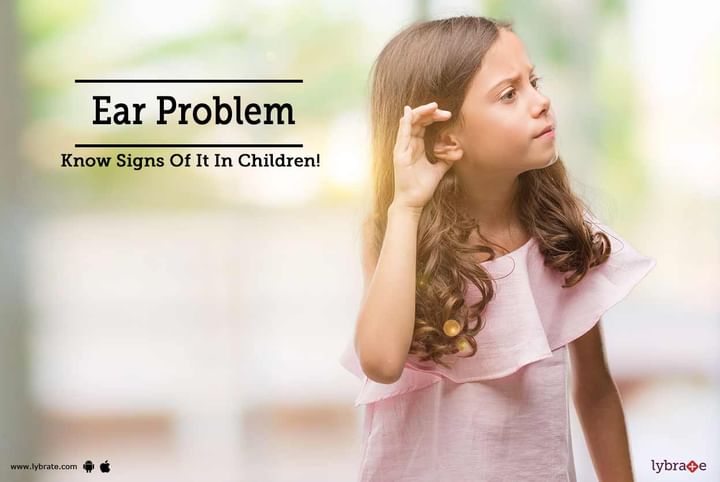Ear Problem - Know Signs Of It In Children!
Ear problems can strike any individual of any age, and be very troublesome. It can even impair normal life. However, children are especially vulnerable to these and all diseases because their immune systems have not developed to full strength yet. There are several kinds of ear diseases that may affect children.
Which is the most common type of ear ailment that affects children?
The human ear has three parts: the inside, the middle and the outside. Children are most prone to acquiring diseases of the middle ear that can impede their hearing temporarily or permanently. The liquid is accumulated in this part of the ear in affected children. Along with mild deafness, related trouble like a pain in the ear may also be caused. Antibiotics are the most common treatment in these cases.
Symptoms: What gives away hidden ear disease in children?
Ear diseases are difficult to detect in children, as the middle ear is not visible with the naked eye, and children most often do not complain of pain there. These symptoms are helpful in detecting if there really is a problem-
• Pain in the ears
• The pain inside the head
• Liquid coming out of the ear
• Fever
• Losing the will to eat
• Difficulty hearing
The most common childhood hearing ailments-
Following are the (hidden) ear diseases that affect the most number of infants and children-
• Acute otitis media - This is a severe infection of the middle ear, causing pain and irritation there. Fluid discharges are also common. The child should be taken to visit an Ear-Nose-Throat specialist. They will treat her/him with antibiotics, as the underlying cause is mostly bacteria.
• Otitis media with effusion - This occurs after an ear infection is generally over, and the child does not feel any discomfort. However, the doctor senses fluid build up and infections still present in the ear. This condition mostly heals on its own.
• Congenital hearing loss - The child may have been born with hearing loss. This happens if congenital hearing loss runs in the family, or if the mother had major diseases like diabetes. Another possibility of hearing loss is that the baby may have been born with disorders of the brain or the nervous system.
• Acquired hearing loss - The child may develop hearing loss in her/his lifetime due to reasons like chicken pox, influenza or serious damage to the head.
Hearing loss or ear diseases are somewhat common across age and generations of people, but they also can hinder your normal functioning. If you suspect your child has one, you should take her/him to a specialist immediately and try to test if she/he has any of the above disorders.



+1.svg)
